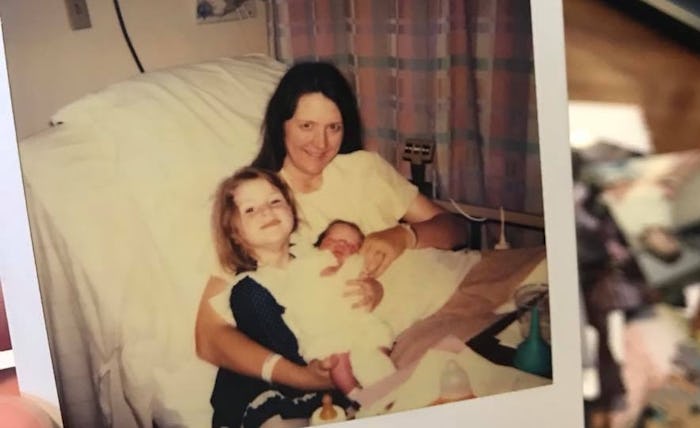Life

When Fertility Drugs Can Help, But You Wish You Didn't Need Them
Romper's Trying project follows five women with very different stories through a year of trying to conceive. Where discussions about fertility often focus on the end goal, they'll document what it's like emotionally, physically, and spiritually before you get there — the anxiety, the hope, the ovulation kits, the tests. How do you function when getting pregnant or carrying a pregnancy to term isn't a given? Read on for one woman's answer to that question.
Jessie has been married for three years and trying to conceive for one year. This is the fourth installment of her Trying diary. You can read the previous entry here.
There are many things about infertility that can feel defeating, but the one that seems to constantly drag me under is fertility medication and the surrounding discussion. While there are countless opinions and thoughts about medication in any context (deep breath), the second that infertility is mentioned, well meaning, truly caring and compassionate people won't hesitate to recommend medication. But beyond the way that fertility medications make women feel physically (about which), there is a stigma that comes with the decision to delve into infertility drugs.
I have frequent and incredibly debilitating panic attacks where I feel like I’m drowning and can’t breathe, and it takes everything in my entire being not to start clawing at the air for breath while I sit next to you at Starbucks.
This is a feeling I have encountered in my life before in dealing with my mental illness. I have OCD, or obsessive compulsive disorder. This manifests in frequent and incredibly debilitating panic attacks where I feel like I’m drowning and can’t breathe, and it takes everything in my entire being not to start clawing at the air for breath while I sit next to you at Starbucks. For an incredibly long time, I tried to go this alone. I fought my mental illness by swinging blindly, not knowing what I was fighting and with no end in sight. Once the depression and self loathing took hold, I knew that I had to get help.
In my family, we were raised by our mother to believe in only prayer or natural supplements — never counseling or other proactive approaches to managing mental health. Even now, she tells me that she hopes that someday I’m able to be strong enough in my faith to stop taking Prozac and needing therapy to calm my panic and anxiety.
Even knowing that antidepressants have been key in managing my disorder, I wrestle with a need to feel like I’m doing this on my own, that I’m in control, and the success, when I reach it will be mine. To feel like I don’t need medication to do the things that I want to do, and if I just try this one other thing maybe that will work and I will have achieved this by my own hard work. That same internalized stigma bubbles up around my decision to use medication to treat my infertility. I have completed two rounds of Clomid in combination with Metformin. It gave me bad side effects so we discontinued that route. And it's part of why I have been nervous to start another round. Dreading the side effects, but also feeling that same urge to go it alone.
My body is the problem again, only this time, it isn’t my brain it’s my hormones and my ovaries.
However, I quite literally can not do this on my own. My partner is with me, and the success will also be his, and unfortunately, so will the failures. I have others with me as well, those that I have surrounded myself with over the past year that fill me with hope and endless love. These people carry me when I feel weary under the weight of this journey. I do have my faith, though my mother would tell you differently. But still, the pressure builds. My body is the problem again, only this time, it isn’t my brain it’s my hormones and my ovaries, and the route that I take to remedy the problem will directly impact the happiness and success of my partner. Buckling down and working harder isn’t going to get the job done here, just like it wasn’t going to fix the chemical imbalance in my brain.
“Have you tried IVF?” asks the well-meaning, caring person that is patiently listening to my incredibly personal problem with which they have little to no experience. No, I tell them, no I have not.
IVF is thrown around so casually that you would think that it’s just as simple as doing something akin to donating blood, when in actuality it’s super intensive. Not only am I not yet ready for the crippling debt that would accompany such an endeavor, I don’t think my body is ready for the medication that is given in that part of Hell, or the special kind of sadness that I imagine would set in after a failed round or two. Fortunately for us, we still have other medical options before we reach IVF.
But where does that leave us, I ask myself. I mucked through years of untreated OCD and panic feeling miserable. How long will we trudge through our infertility before I take action and follow the medically designed plan that could help us achieve our dream of becoming parents? I know that this time when the doctor asks what option we would like to pursue, I’ll tell him confidently: the one that puts a baby in me.
This article was originally published on